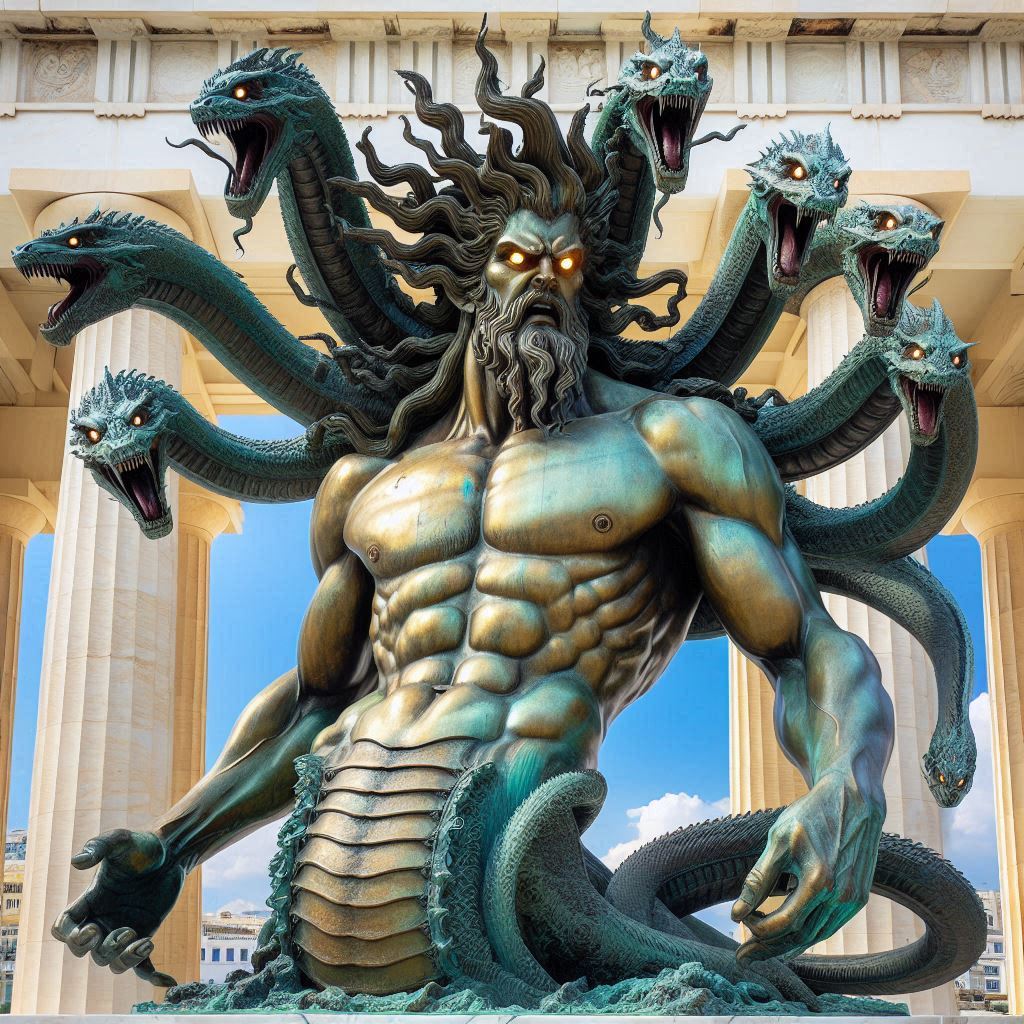Typhon: The Fearsome Titan of Greek Mythology
Introduction
In the rich tapestry of Greek mythology, few figures are as imposing and fearsome as Typhon. Known as the father of all monsters, Typhon embodies chaos and destruction, standing as a formidable adversary to the gods of Olympus. His story, steeped in myth and symbolism, illustrates the ancient Greeks' attempts to explain natural phenomena and the balance between order and chaos. In this blog post, we will explore Typhon's origin, powers, appearance, and his epic battle with Zeus, as well as his connection to weather phenomena.
Table of Contents
- Greek Mythology Facts
- Origin of Typhon
- Powers of Typhon
- Appearance of Typhon
- Battle with Zeus
- Typhon and Weather Phenomena
- Conclusion
Greek Mythology Facts
Greek mythology is filled with intriguing tales and characters that have shaped Western culture. It consists of a pantheon of gods, goddesses, heroes, and mythical creatures, each with unique stories and attributes. Typhon stands out as a pivotal figure, often seen as the personification of the primal forces of nature. The myths surrounding him provide insight into ancient Greek beliefs about the universe's chaotic aspects.
Origin of Typhon
Typhon's origins are shrouded in mystery, with various accounts detailing his parentage. In most myths, he is born from Gaia, the Earth, and Tartarus, the abyss beneath the Earth. This powerful lineage signifies his connection to both the Earth and the chaotic forces that lie beneath. Some versions of the myth even suggest that Typhon is a child of Gaia and Uranus, the primordial sky. His birth is often attributed to Gaia's anger after the Titans' defeat by the Olympian gods, marking Typhon as a representation of rebellion against the established order.
Powers of Typhon
Typhon is often regarded as one of the most powerful beings in Greek mythology. His abilities include:
- Immense Strength: Typhon's sheer size and strength make him a terrifying opponent for any deity.
- Control over Storms: He is often associated with thunder, lightning, and violent winds, showcasing his dominion over the tempestuous aspects of nature.
- Fire and Destruction: Many myths depict him as breathing fire, representing his connection to volcanic eruptions and destructive forces.
Appearance of Typhon
Typhon's appearance is as fearsome as his reputation. He is typically depicted as a massive creature with:
- Multiple Heads: Some stories describe him as having a hundred heads, each capable of emitting flames and roaring terrifyingly.
- Serpent-Like Features: His body is often covered in snakes, emphasizing his monstrous nature and chaotic essence.
- Fearsome Eyes: His eyes are said to glow with a fierce light, further instilling fear in those who dare to gaze upon him.
Battle with Zeus
The most famous story involving Typhon is his epic battle with Zeus, the king of the gods. According to mythology, Typhon challenged Zeus for control of the cosmos. The battle was fierce, with both sides unleashing their full might. Typhon managed to injure Zeus, but the king of the gods ultimately triumphed by using his thunderbolts, symbolizing the victory of order over chaos. After his defeat, Typhon was imprisoned beneath Mount Etna in Sicily or, in some versions, beneath Mount Olympus, representing the confinement of chaotic forces.
Typhon and Weather Phenomena
Typhon's association with storms and chaotic weather is significant in Greek mythology. His ability to summon violent winds and storms reflects the ancient Greeks' attempts to explain natural disasters. They believed that Typhon's wrath could unleash hurricanes, earthquakes, and volcanic eruptions, showcasing the connection between mythology and the natural world. Even today, the term "typhoon" is used to describe powerful storms, a testament to the lasting impact of this mythological figure.
Conclusion
Typhon remains a compelling figure in Greek mythology, embodying the struggle between chaos and order. His origins, powers, and appearance paint a vivid picture of the ancient Greeks' understanding of the natural world's unpredictable forces. The legendary battle with Zeus not only highlights the heroism of the Olympian gods but also serves as a reminder of the ever-present potential for chaos in our lives. As we continue to study and explore these myths, Typhon stands as a testament to the rich narratives that have shaped our understanding of the world.



